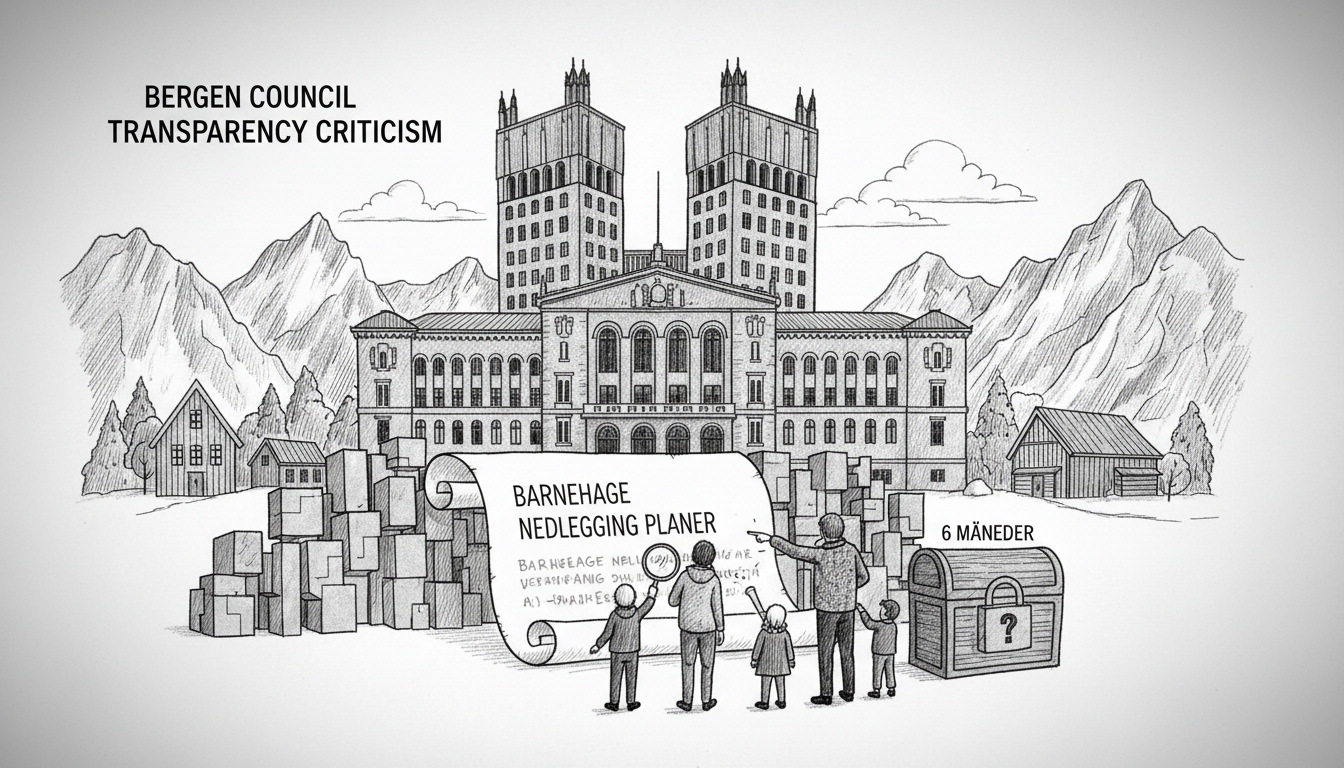Bergen city officials face mounting criticism after concealing kindergarten closure proposals for half a year. The municipal government failed to disclose plans that would shutter multiple early childhood education facilities across Norway's second-largest city. Local parents discovered the hidden documents through public records requests after months of official silence.
This controversy emerges during Norway's ongoing demographic transition. Urban centers face changing population patterns while maintaining universal childcare access. The Norwegian kindergarten system represents a cornerstone of the country's social welfare model. It guarantees affordable care for all children from age one while supporting parental workforce participation.
Bergen's situation reflects broader challenges in Norwegian municipal governance. City councils nationwide balance budgetary constraints against service delivery expectations. The western coastal city specifically confronts infrastructure maintenance costs across its seven mountains and numerous fjord-side communities. These geographical features create unique operational challenges for public services.
Political opponents question the transparency of Bergen's current administration. Several city council members expressed concern about the delayed disclosure. One representative stated the concealment damages public trust in local government. Another official noted that families deserve timely information about potential service changes.
Kindergarten access remains particularly crucial in Norwegian society. The country maintains one of Europe's highest female workforce participation rates at nearly 75 percent. This achievement relies heavily on comprehensive childcare systems. Any reduction in kindergarten availability could impact parental employment patterns, especially for mothers.
The hidden closure proposals also raise questions about Norway's oil economy priorities. As Western Europe's largest petroleum producer, the country channels substantial oil revenues into public services through its sovereign wealth fund. Some citizens question why energy wealth isn't preventing service reductions in key urban areas.
Bergen's municipal government now faces difficult decisions about kindergarten infrastructure. The city must address aging facilities while maintaining educational quality standards. Norwegian law requires municipalities to provide kindergarten access for all children whose parents request it. This legal framework creates both obligations and financial pressures for local governments.
What consequences will emerge from this six-month concealment? The controversy may influence upcoming local elections across Norwegian municipalities. Voters typically prioritize education and childcare accessibility when evaluating municipal performance. This incident could reshape political dynamics in Hordaland county and beyond.
Norwegian kindergarten policy remains central to the country's social contract. The system embodies Nordic values of equality and work-life balance. Any changes to this infrastructure warrant thorough public discussion rather than concealed planning processes. Bergen's experience serves as a cautionary tale for municipal governments nationwide.

